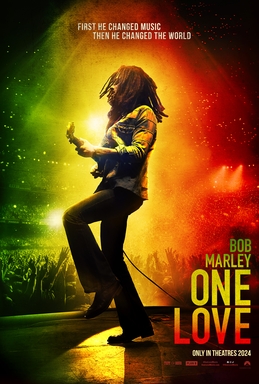
The new biopic, “Bob Marley: One Love,” about the Jamaican reggae singer Bob Marley was released on Feb. 14.
Born on Feb. 6, 1945 in Jamaica, Robert “Bob” Nesta Marley began to sing covers at age 14, leading to the production of his first recordings and the opportunity to record alongside the original members of The Wailers. Although the original members were eventually gone, Marley continued to record music and go on tours under the name.
Throughout his successful lifetime, his political views attracted much controversy. Despite this, supporters found his unapologetic, outspoken behavior as brave and inspiring, leaving a legacy that would live on for decades to come.
Counselor David Canales ’02 stated, “I’m glad he had the courage to do it. He supported freedom and culture, and I feel like they (the public) weren’t telling every artist to only play music, but just ‘certain ones.’ It just goes to show that when someone from a disadvantaged background starts to gain power, people in power don’t want to lose it and I think Bob is a prime example of that.”
History teacher Bob Harrington stated, “He was the first rockstar from the developing world, so there’s an underdog quality to his story. He and his group rose up to make a connection with the world and also teach about the African
diaspora.”
The musical drama biopic will celebrate and acknowledge the life and music of the icon who inspired generations with his messages of love and unity.
With more than 20 million records sold throughout his career, Marley’s influence of reggae music made him an ambassador for then genre.
Marina Viray ’24 stated, “I think his music had the greatest impact on the world. He made reggae music globally popular, and his lyrics advocating love, peace, and social justice resonated with many different audiences, which made him a global symbol of unity and resistance against oppression.”
Bob Marley, the “King of Reggae,” advocated for his culture and spread messages of hope, justice, and understanding the world for the better.






